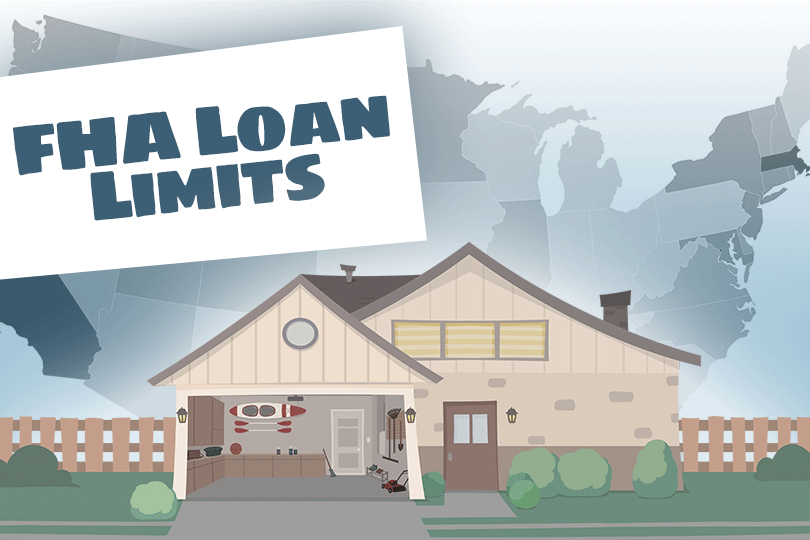Important Things to Know About FHA Lending Limits
September 17, 2022
Why Does the FHA Set Limits?
The reason for setting lending limits is straightforward; by placing a limit on how much an FHA lender loans to a borrower, they can manage the risk of the borrower defaulting on the loan.
The FHA’s goal is to help more families gain access to affordable housing. By backing approved lenders and allowing them to grant mortgages to low and moderate-income borrowers, the FHA is granting more homebuying opportunities where there were none previously. To continue growing the housing market, the FHA determines what it can afford to insure, and sets limits that borrowers must follow.
How Are FHA Limits Set?
FHA lending limits are updated annually and are determined according to the location of the home and property type, using a percentage of the national conforming loan limit, set by the Federal Housing Finance Agency (FHFA).
The FHA determines high-cost areas of the country based on income levels, construction costs, and housing demand. Heavily populated metropolitan areas have higher median home prices, which is why the FHA sets the limit at the higher end, also known as the “ceiling.” That ceiling is set at 150% of the national conforming loan limit. For counties with lower construction costs and income levels, the FHA sets a lower limit known as the “floor.” This limit is set at 65% of the conforming loan amount.
There are some counties in the U.S. that fall between the floor and ceiling. For these areas, the limit is equal to 115% of the median sale price of a home in the area. For example, if the median sale price in a particular market is $500,000, the loan limit would be (115% of $500,000) $575,000.
The FHA’s limits also vary based on property type. It insures loans to buy a duplex, triplex, or four-unit property if the borrower continues to live in one of the units. Taking this into account, there are separate FHA limits for all property types in every county.
What If I Exceed FHA Loan Limits?
Oftentimes, borrowers may find a home that they fall in love with, but one that costs more than the FHA will insure. In such cases, there are still options to stick with an FHA loan. If you can put down more than the minimum 3.5% on the house, you can buy a pricier home with the same FHA loan limit.
You also have the option of financing with an FHA Jumbo Loan, mortgages that exceed the FHA's county limit for home loans in each zip code. Since jumbo loans come with greater risk to the lender, the FHA has more stringent eligibility requirements for borrowers. The minimum credit score required to apply for an FHA Jumbo Loan is 600 instead of 580, and 640 for refinances.
The FHA also forbids applicants from using any assistance or gift funds for the 3.5% down payment, to ensure that borrowers have the finances to afford the large loan. An FHA Jumbo Loan might require two separate appraisals if the market is declining or the borrower is making a down payment of 5% or less. Borrowers should also note that FHA jumbo loans typically have higher interest rates than conventional jumbo loans.
If you are getting ready to purchase a home with an FHA loan, it is important to know just how much you can borrow. Visit our FHA Loan Limits page to find out the maximum loan amount in your county.

FHA Loan Articles
June 15, 2023When you buy a home with an FHA mortgage, cash for closing costs and your down payment is required. It would be easy to assume you simply give the lender cash in the specified amount and that’s the end of the story.
May 20, 2023Did you know there is an FHA loan option that lets you build a house from the ground up? You can use this mortgage to build on land you own or on land you buy as part of the loan. But you will want to address some issues comparing construction loan options.
May 3, 2023Sometimes when buying a home there may be a question of surplus or excess land. You likely won’t face this issue when buying a condo unit, but for other types of purchases, this may be an important factor in the appraisal process.
April 18, 2023Your lender is required to make sure you can realistically afford your mortgage, and that means verifying that your income is stable, reliable, and will continue after your mortgage has closed. What some don’t realize about this process is that there are standards for verifying income.
April 1, 2023FHA loan rules for single family purchase loans include guidelines for the lender to use if the applicant has rental income. Some want to know whether it is possible to qualify for an FHA mortgage using rental income. The real issue is whether the rental income meets FHA loan rules.







